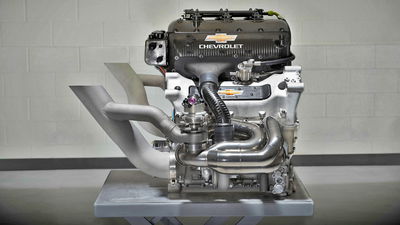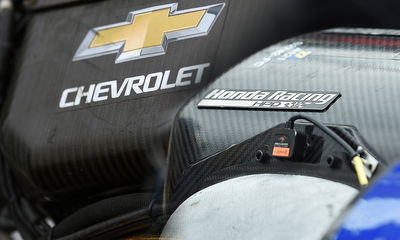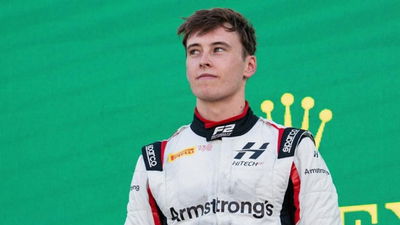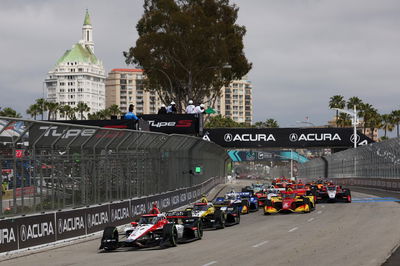IndyCar Cancels Plan for New 2.4-Liter Hybrid Engines

The new engine formula for IndyCar was supposed to transition to 2.4-liter units, but those plans were scrapped before the start of this past season, due in large part to global parts supply chain issues. Instead of delaying that move another year, all parties have decided to remain with the current 2.2-liter package.
Despite the setbacks, Chevy and Honda both tested their 2.4-liter engines on the Indianapolis Motor Speedway road course back in March. They tested the hybrid units in October and it was understood that the parts supply shortage was improving. The sense of optimism was erased today when the series released a statement on the future.
The series announced that the 2.4-liter engines were being "paused" and that the focus over the next 15 months will be on the hybrid component, with both manufacturers, as well as a new outside supplier. The current 2.2-liter V6 engines have been used by the series since the 2012 season.
One of the big selling points was to be an additional 150-200 horsepower. Speculation is that the cost of developing the new internal combustion engines along with a completely re-developed ERS unit was just too high. The latter was not something the series had anticipated when the project began.

The inability to land a third engine manufacturer also played a major role in this decision. The series has been relying on these two entities to supply the entire grid every year, and the number of entries keeps expanding. There will be at least 27 full-time cars on every race weekend next season. Each engine lease costs the manufacturers nearly $2 million each.
“We are most proud of the many advancements that the NTT IndyCar Series has made in leading the motorsports world toward a more sustainable future”, IndyCar President Jay Frye said. “The 2.2-liter INDYCAR engines supplied by Honda and Chevrolet have provided the most competitive racing in the world. The 2024 hybrid engine package will provide even more excitement with horsepower increases over the current engine.”
Honda and Chevy will be working diligently over the next few months to get the new ERS unit fully operational with the current engine specs. Testing with the full hybrid configuration is expected to take place in the next month or two. The 2023 IndyCar season kicks off March 5 on the streets of St Petersburg.











